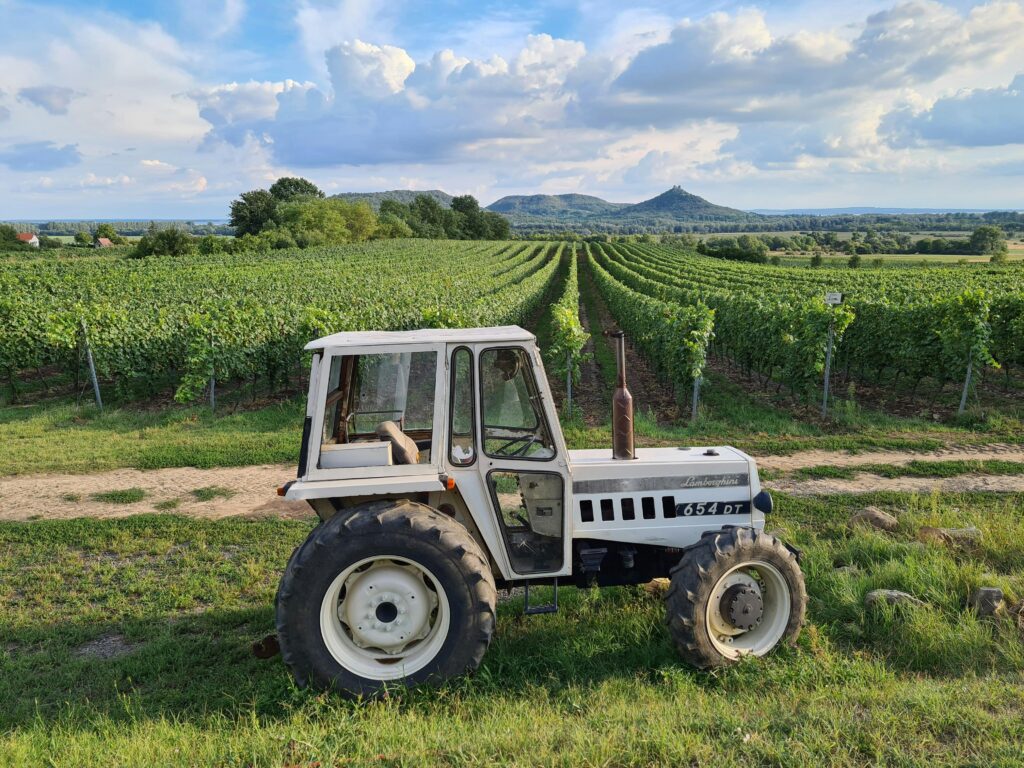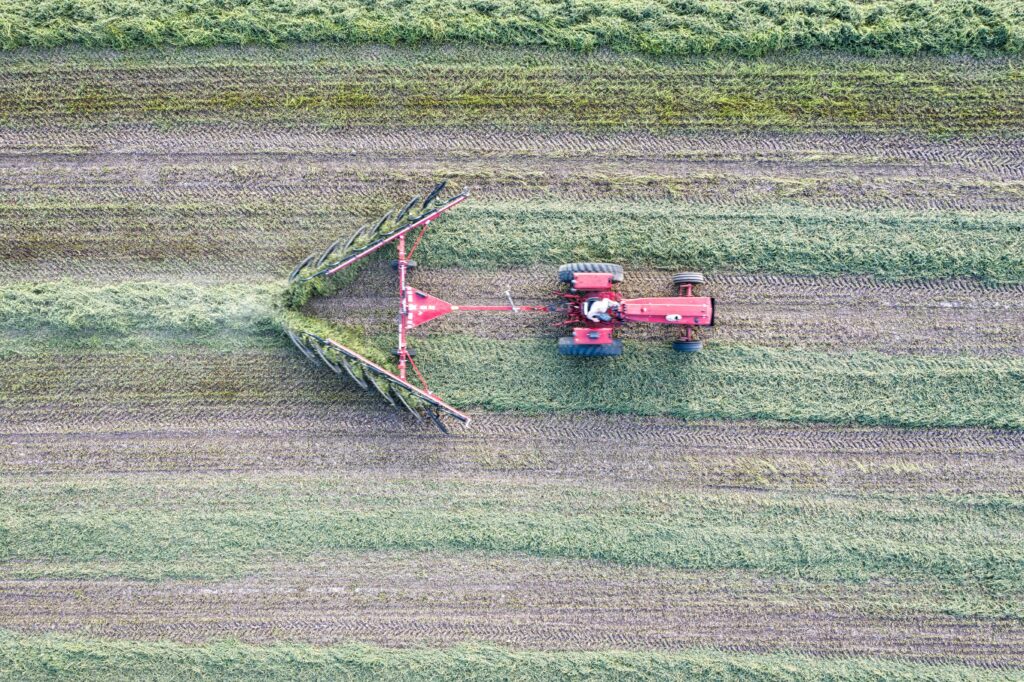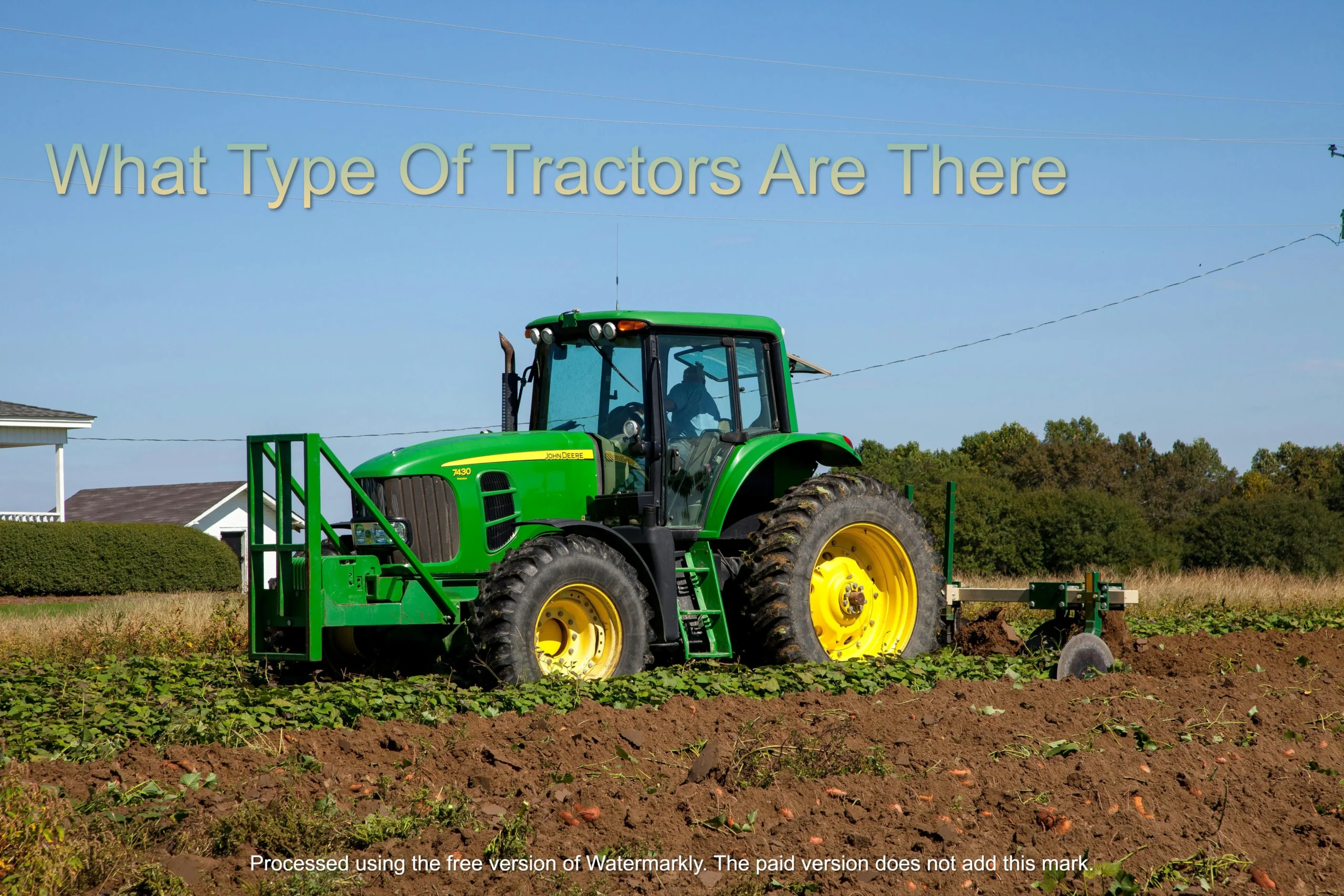Guide to the Many Faces of Modern Tractors!” Tractors have become the backbone of modern agriculture, revolutionizing the way farmers cultivate their land and manage various tasks. From small family farms to large agribusinesses, tractors come in various types, each tailored to specific needs and applications.
Introduction
Definition of Tractors
Tractors are powerful vehicles designed to perform various tasks in agriculture and other industries. They serve as the workhorses on farms, aiding in plowing, planting, and harvesting, among other activities.
Importance in Agriculture
The significance of tractors in modern agriculture cannot be overstated. They have not only increased efficiency but also reduced the labor-intensive nature of farming, allowing for greater productivity.
Types of Tractors
Utility Tractors

Small Utility Tractors
Small utility tractors are versatile machines suitable for a range of tasks on small to medium-sized farms. They are compact, maneuverable, and often come with multiple attachments.
Large Utility Tractors
Designed for more substantial agricultural operations, large utility tractors provide greater power and efficiency. They are capable of handling larger implements and covering more extensive areas.
Row Crop Tractors
Features and Applications
Row crop tractors are specifically designed to navigate rows of crops with precision. Their adjustable wheelbases and specialized tires minimize damage to crops during cultivation and harvesting.

Garden Tractors
Ideal for Residential Use
Garden tractors cater to the needs of homeowners with sizable lawns and gardens. These smaller, yet powerful, machines are suitable for tasks like mowing, tilling, and snow removal.
Specialized Tractors
Orchard Tractors
Designed for Fruit Orchards
Orchard tractors are engineered to navigate the tight spaces between fruit trees. Their compact size and specialized features make them indispensable for orchard management.
Industrial Tractors

Heavy-duty Applications
Industrial tractors are built for heavy-duty tasks beyond traditional agriculture. They find applications in construction, forestry, and other industries requiring robust machinery.
Compact Tractors
Overview
Compact tractors strike a balance between power and size, making them ideal for small farms and landscaping. They are versatile, with the ability to handle various attachments.
Applications in Small Farms
Small farmers benefit from the agility and functionality of compact tractors. Their size allows for efficient operation in limited spaces.
Articulated Tractors
Definition
Articulated tractors are unique in their design, featuring a hinge between the front and rear sections. This design enhances maneuverability, especially in challenging terrains.
Advantages in Maneuverability
The articulated design allows these tractors to navigate tight corners and uneven terrain with ease, making them suitable for diverse farming conditions.
Advancements in Tractor Technology
Precision Farming
Modern tractors incorporate precision farming technologies, such as GPS-guided navigation and automated control systems. This enhances accuracy in planting, fertilizing, and harvesting.
Autonomous Tractors
The integration of artificial intelligence and autonomous capabilities is a groundbreaking development in the tractor industry. Autonomous tractors can operate without human intervention, improving efficiency and reducing labor costs.
Factors to Consider When Choosing a Tractor
Farm Size and Type
Selecting the right tractor depends on the size and type of the farm. Smaller farms may require compact tractors, while larger operations benefit from the power of utility or row crop tractors.
Power Requirements
Consider the power needed for the tasks at hand. Different tractors have varying horsepower, and choosing the appropriate power level ensures efficient performance.

Attachments and Implements
Tractors are versatile due to their ability to accommodate various attachments and implements. Matching the tractor to the specific needs of the farm enhances productivity.
Maintenance Tips for Tractors
Regular Inspections
Routine inspections of the tractor’s engine, tires, and hydraulic systems are crucial for preventing breakdowns and ensuring optimal performance.
Oil and Fluid Checks
Regular checks of oil levels and other fluids contribute to the longevity of the tractor. Adequate lubrication is essential for the smooth operation of moving parts.
Storage Guidelines
Proper storage during periods of inactivity protects tractors from the elements, preventing rust and deterioration. Storing tractors in a dry and secure location is key.
Future Trends in Tractor Development
Sustainability Features
Future tractors are likely to incorporate more sustainability features, including fuel efficiency and reduced emissions. Environmental consciousness is becoming a priority in tractor design.
Integration of AI and IoT
Continued advancements in artificial intelligence and the Internet of Things (IoT) will further enhance tractor capabilities. Smart tractors capable of data-driven decision-making will be at the forefront of agricultural technology.
Conclusion
In conclusion, the world of tractors is diverse, offering a range of options to suit different agricultural needs. From small gardens to vast farmlands, there’s a tractor designed to make the work more efficient and less labor-intensive.
Frequently Asked Questions
- Q: What factors should I consider when choosing a tractor for my small farm? A: Farm size, power requirements, and the availability of suitable attachments are crucial factors to consider when selecting a tractor for a small farm.
- Q: Are autonomous tractors widely available in the market? A: While autonomous tractors are gaining traction, widespread availability may still be limited. However, advancements in technology suggest increased adoption in the future.
